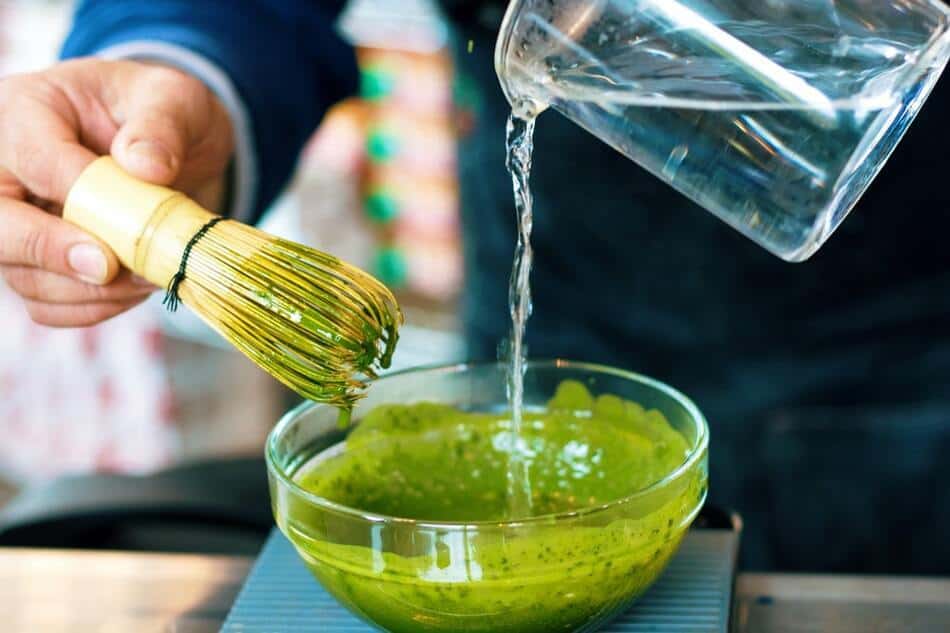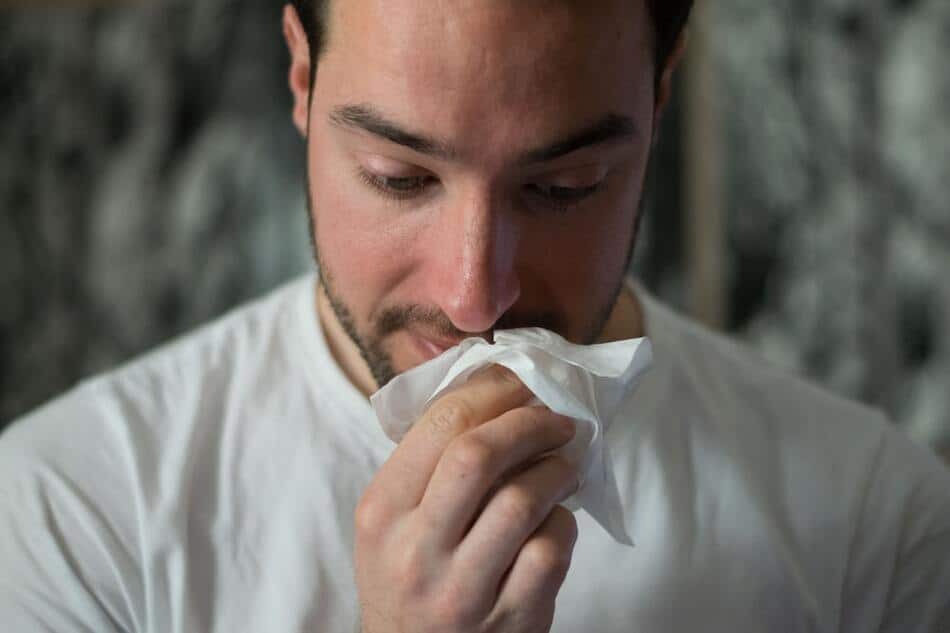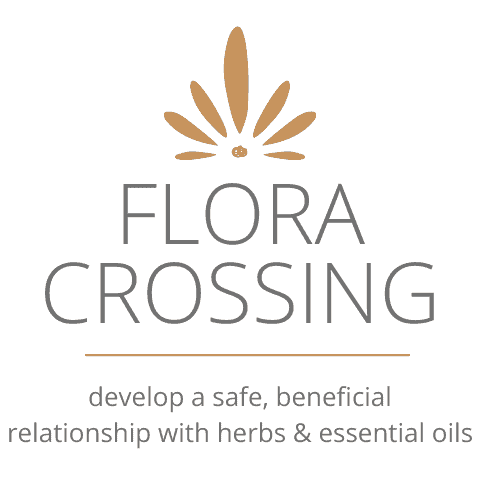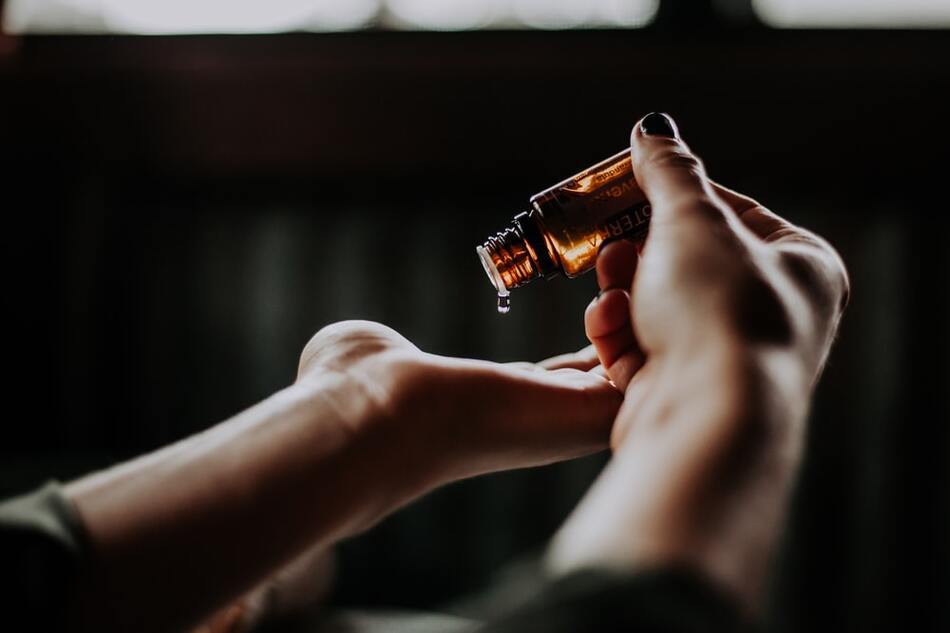When you have a sinus infection, you are unable to focus for long periods of time. Sinusitis, or an infection of the sinuses, is a very prevalent condition. Many people endure it rather than get it treated, however. I don’t want to think about the winter now. However, it will come eventually. One of the most unpleasant is a sinus infection. The majority of the time, the treatment is antibiotics. I’ve been especially trying to avoid antibiotics. What do you do if you have a sinus infection? I’ve got some advice for you. Well, what if we use tea tree oil for sinus infections. So, how to use tea tree oil for sinus infection.
I will tell you about this effective cure in this article. Let us begin!
Tea tree oil is very effective when it comes to sinus infections. I recommend incorporating it as a natural cure. Add 2-3 drops of tea tree oil to the water while boiling it. Inhale the steam as the water boils.
How To Use Tea Tree Oil For Sinus Infection?
Tea tree oil is actually very effective for curing sinus infections. Let me tell you how to do that below.

Using Tea Tree Oil For Sinus Infections
Just follow the steps stated next.
- In a saucepan, boil some water.
- Add a few drops of Tea Tree Oil to the water as it comes to a boil.
- Allow the steam to enter your nostrils for a few seconds.
Tea Tree Oil is a highly antibacterial, antiviral, anti bactericidal, and expectorant. It also has a variety of additional health advantages. So the next time you have a horrible sinus condition, try this easy natural solution!
What Causes Sinus Infections?
Sinus headaches are one of the most painful types of headaches. You might feel pressure on your eyes, cheeks, and forehead. Your head may throb at times. The following are some other frequent symptoms: a clogged nose, tiredness, and an aching sensation in your upper teeth. What causes sinus headaches?

When your sinus passages are inflamed from allergies or infection, you get sinus headaches. Those who suffer from hay fever because of environmental factors are really suffering from seasonal allergy symptoms.
Now, I will tell you about some other effective ways to get rid of a sinus infection.
Other Effective Ways To Deal With Sinus Infections
Taking a hot shower may relieve severe sinus pain and headaches.
There are several easy modifications you may make to your lifestyle to alleviate sinus headaches. It’s possible that nothing will help, but it’s worth a try!
Using A Humidifier
Humidifiers can help with your nasal headache by adding moisture to the air. Because humidity causes mucus in your nose to thin out, it can aid in the relief of blocked sinuses.
You may also improve the efficacy of a humidifier by combining it with aromatherapy essential oils, such as tea tree oil.
Go For A Hot Shower!
A hot shower can help with sinus headaches. The steam from a hot shower might relieve nasal congestion.
Saltwater Irrigation
Saltwater irrigation, or a sinus flush, is administered to assist with sinus discomfort. This is a simple home treatment that you may use to alleviate sinus problems.
Making your own nasal flush is quite simple. All you need are premixed saline packets that may be bought over-the-counter and a neti pot.
Using A Saline Nasal Spray
Saline nasal sprays are similar to the salt irrigation technique we just discussed, and they may be found at pharmacies or health stores.
Nasal sprays have several advantages over salt irrigation, one of which is that they are smaller and simpler to transport.
Warm Compress
A warm towel over your forehead and nose may help to reduce inflammation and swelling in your nasal passages. It’s also a simple at-home treatment that you can use before going to sleep.
Eating Spicy Food
A few chili peppers, which are pungent spices that might help with sinus pressure. To relieve a stuffy nose and headache, try eating hot foods. Spicy dishes can help clear sinus congestion, providing sinus pain relief.
Spicy meals might be useful in opening up your nasal passageways. Ginger, raw garlic and onions, chilies, and spicy mustard are some spices that aid with nasal tension.
Staying Hydrated
Staying hydrated is essential for your general health and aids in the elimination of toxins from your body.
A lot of fluids might assist in reducing nasal mucus, allowing your sinus passageways to remain less congested. When you are dehydrated, your sinus passages get dried out, leading to higher pressure and discomfort.
There are alternatives to water if you feel bloated from drinking a lot of water or don’t enjoy drinking water in general.
Elevating Your Head
Do you ever feel that your sinuses get worse in the morning as opposed to throughout the day?
Another reason is that when you’re sleeping, you’re flat on your back, which can cause mucus to build up and increase sinus pressure. If there’s too much mucus in your system, you won’t be able to sleep well.
To avoid these issues, use more than one pillow to raise your head so that you’re not just resting flat. You don’t need to make a lot of adjustments in order to your sleeping posture — simply ensure that your head is elevated above the heart level.
Acupressure
Acupressure is a type of Chinese medicine that uses pressure on particular regions of your body to alleviate pain and sickness symptoms.
Although there is no known scientific mechanism behind these therapies, acupressure has been shown to help with colds and other respiratory illnesses. It may be done at home or by a professional practitioner, according to your preference.
Using Vitamin C
Vitamin C can also help you prevent sinus infections by increasing the amount of vitamin C you consume on a daily basis. Moreover, Vitamin C not only boosts and protects your immune system, but it can also help with allergic responses in some cases.
In addition, Vitamin C should be part of your defense against both immunity and allergies since they can cause sinus infections. Vitamin C, in addition to providing antioxidant benefits, will assist you to prevent future infections.
Final Thoughts
This was my complete guide to dealing with sinus infections. You can go for any method discussed in this article. However, if your sinus infection symptoms stay, I recommend consulting your physician.
Read More, Know More!
How to Make Echinacea Tea and Feverfew Tea?
Making Rosehip Oil And Cinnamon Oil.

